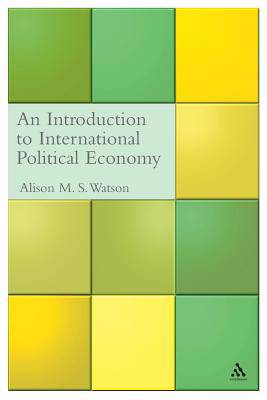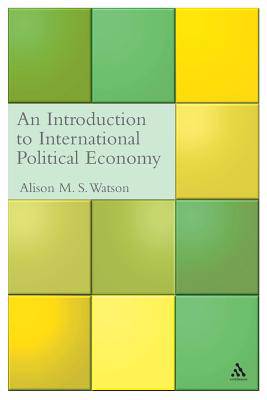
Je cadeautjes zeker op tijd in huis hebben voor de feestdagen? Kom langs in onze winkels en vind het perfecte geschenk!
- Afhalen na 1 uur in een winkel met voorraad
- Gratis thuislevering in België vanaf € 30
- Ruim aanbod met 7 miljoen producten
Je cadeautjes zeker op tijd in huis hebben voor de feestdagen? Kom langs in onze winkels en vind het perfecte geschenk!
- Afhalen na 1 uur in een winkel met voorraad
- Gratis thuislevering in België vanaf € 30
- Ruim aanbod met 7 miljoen producten
Zoeken
Omschrijving
This book provides an overview of the dynamics of the contemporary global political economy, with an emphasis on explaining these dynamics in both theoretical and practical terms. It opens with a chapter on exactly what the study of IPE entails, looking at the way in which politics and economics interact, the relationship between domestic and international factors, and the role of the state. Watson goes on to outline the major theoretical approaches to IPE, from the traditional theories including liberalism and Marxism, to alternative theories including rational choice and new institutionalism. In Part Two, she outlines the major policy issues characterizing IPE, and in Part Three, she looks at case studies to illustrate the theoretical points she has made. These include the world trade negotiations at Seattle, a description of the reasons for growth in regional integration arrangements such as the EU, and a discussion of the impact of capital flight.
Specificaties
Betrokkenen
- Auteur(s):
- Uitgeverij:
Inhoud
- Aantal bladzijden:
- 162
- Taal:
- Engels
- Reeks:
Eigenschappen
- Productcode (EAN):
- 9780826465894
- Verschijningsdatum:
- 31/01/2005
- Uitvoering:
- Paperback
- Formaat:
- Trade paperback (VS)
- Afmetingen:
- 156 mm x 232 mm
- Gewicht:
- 267 g

Alleen bij Standaard Boekhandel
+ 339 punten op je klantenkaart van Standaard Boekhandel
Beoordelingen
We publiceren alleen reviews die voldoen aan de voorwaarden voor reviews. Bekijk onze voorwaarden voor reviews.









